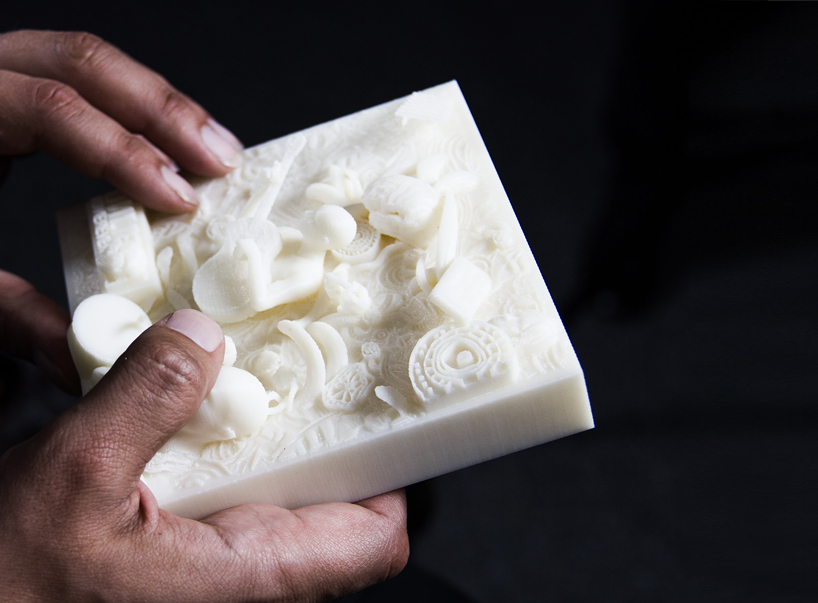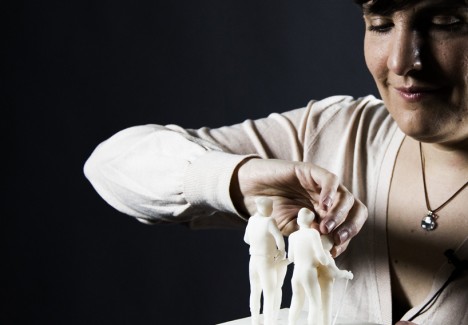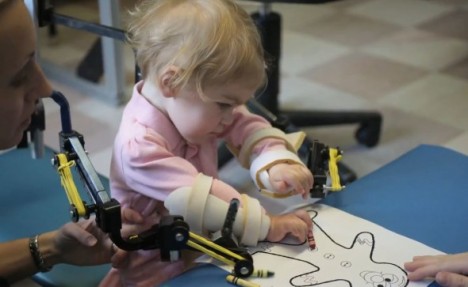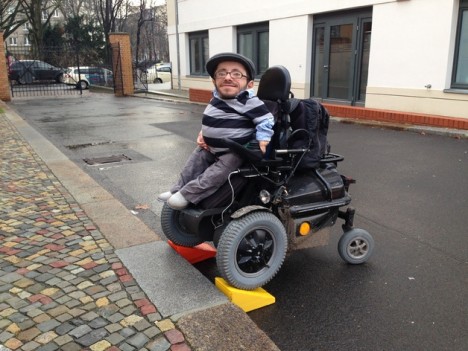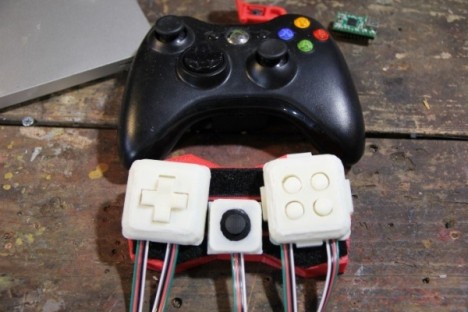Increasingly affordable and accessible, 3D printing is enabling the creation of everything from simple straw holders to prosthetic hands for people with disabilities, whose quality of life can be greatly enhanced with a little technology. These 12 creations help the blind visualize memories, allow kids with muscular dystrophy to play video games, and even restore brain function after devastating accidents.
Touchable Memories: Tactile Photos for the Visually Impaired
An affordable home printer called the Buccaneer can be used in conjunction with ‘Touchable Memories,’ a software by Pirate3D, to turn photographs into tactile 3D-printed objects. The project allows people who have lost their eyesight or been blind from birth to visualize the memories that were photographed, whether in relief form or as freestanding sculptures.
‘Magic Arms’ Exoskeleton
A little girl suffering from a rare congenital disorder that limits her ability to use her arms now has a ‘magic’ exoskeleton that aids her movement and enables her to lift objects. A team at the duPont Hospital for Children created a wearable 3D-printed plastic jacket that’s lightweight enough to be used by small children. Heavier, larger versions of the robotic exoskeleton are hard to use and expensive to replace as the children grow, but using 3D printing means it’s as simple as adjusting the dimensions on the 3D model and printing a new one.
Q-Ramp Modular Access System for Wheelchairs
Most cities aren’t exactly built with wheelchairs in mind, but for a few ramps here and there. Raul Krauthausen of Berlin, who uses a wheelchair full-time due to a genetic bone disorder, had trouble getting around Berlin on his own. Having purchased a 3D printer just for fun, he started envisioning how he could use it to improve his quality of life. The result is a portable, printable wheelchair ramp that’s easy to carry on the back of his chair. Krauthausen put the design up on Thingiverse so others can print their own.
Custom Game Controllers
Conditions like muscular dystrophy can weaken the muscles to the point that even using a game controller is too tiring. Tinkerer Caleb Kraft noted that the special controllers marketed to the disabled were grossly overpriced, and decided to come up with his own solution. His 3D-printed creation is not exactly robust enough for most of today’s more complex games, but it allows a child to play Minecraft.
